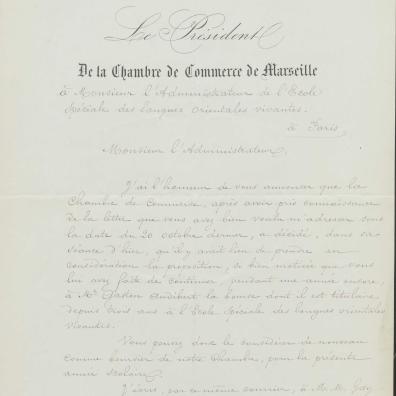Being a scholarship holder at the École des langues orientales vivantes
The scholarship system developed rapidly in the second half of the 19th century, making it easier to finance the higher education of assiduous and talented students. The École des Langues Orientales quickly became part of this dynamic.
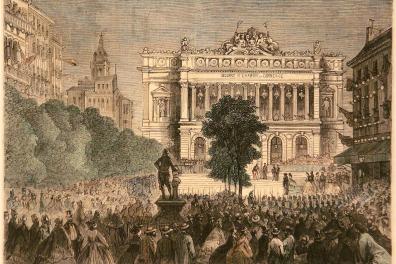
As early as 1857, a letter from Charles Hippolyte de Paravey called on the Ministry of Public Instruction to grant scholarships "to young people who would be destined for the state of sub-regargue [Person chosen by a shipowner or charterer and embarked on a ship to manage the cargo, sell it and replenish the ship for the return voyage] for the East Asia trade."
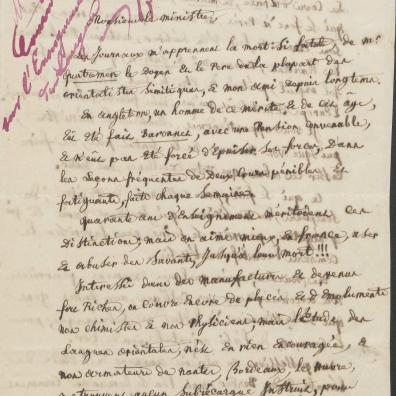
Finally, in 1869, in article 19 of the November 8 decree, the status of boarding student was defined. However, certain aspects relating to the procedures for obtaining it were subsequently specified, notably by three resolutions adopted at the Conseil de perfectionnement on June 17, 1876.
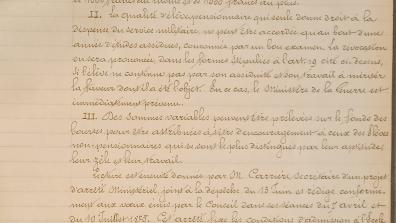
Only regular students who have already completed one year of study at Oriental Languages are eligible to apply for a pension. The various applications are then examined by the teachers' assembly, then by the Conseil de perfectionnement, which decides on the number of scholarship students and the sums they can potentially benefit from. By way of example, this sum amounted to 3,000 francs in 1869, 4,600 in 1876 and 4,000 francs in 1910. The question of approving these files regularly crops up in board minutes, sometimes occupying the majority of the session.
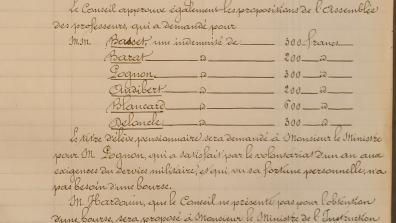
The Ministry of Public Instruction is not the only one that can grant scholarships or pensions. In addition to other ministries, the School could also count on funding from other organizations such as chambers of commerce. Starting in 1872, the Marseille Chamber of Commerce offered a scholarship to students from the Bouches-du-Rhône region. Foundations such as the Lyautey Foundation also offered scholarships. These various sources of funding underline the interest that a wide range of players, both political and economic, take in Langues O' students.
Article from the series of historical narratives Flâneries dans l'histoire de l'Inalco, which each month highlights a singular episode in the history of the institute.
